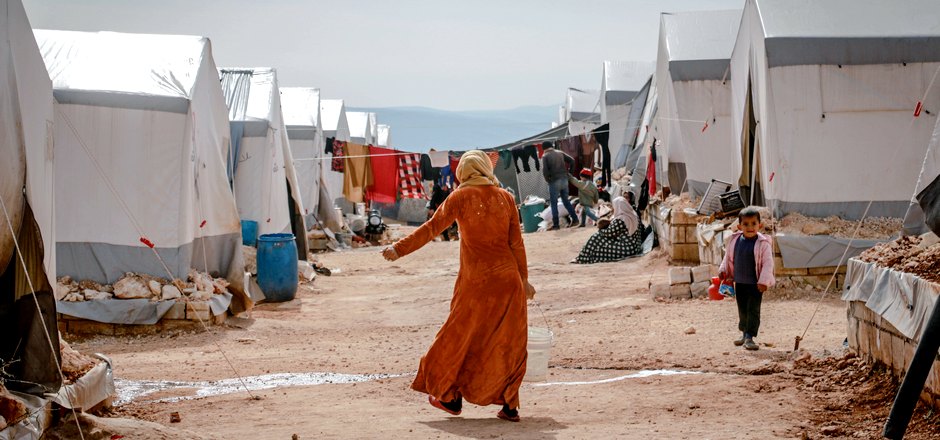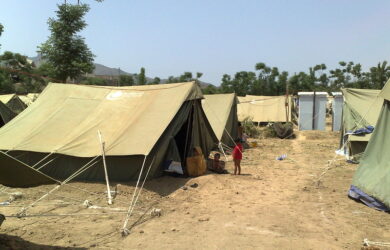
The challenge
Refugee populations, by dint of their circumstances or by deliberate design, often face multiple vulnerabilities that render them particularly vulnerable to climate change. More often than not, refugees reside either at the edge of cities in low-quality housing or in camps located in remote and desolate locations.
These environments are particularly prone to extreme weather events, such as heavy rains and floods, droughts, extreme cold or cyclones. When such events occur, the impacts on livelihoods in the camps are often extremely harmful. Settlements are frequently built as ‘temporary’ solutions to displacement crises and therefore do not contain solid and sustainable accommodation. Moreover, refugees are often deprived of their basic and fundamental human rights, such as the right to work and the right to move, which would allow them to become more resilient to shocks.
Despite these vulnerabilities, ‘inclusive’ approaches to climate change – e.g. so-called ‘pro-poor’ policies – as well as inclusive development approaches to climate change – rarely include refugees. Refugee populations are also often excluded from national social protection programmes designed to protect and promote livelihoods. These various forms of spatial and socio-political exclusion make refugees particularly vulnerable to climatic events associated with climate change.
The aim of this research project is to provide empirical insights into the vulnerabilities of refugee camp locations and camp residents to climatic events, both rapid and slow onset, and to identify and evaluate innovative policy strategies that can be used to reduce these vulnerabilities. That aim can be split into three questions:
i. What are the specific vulnerabilities of refugee camps and refugee camp residents to climatic events?
ii. What impacts do climatic events have on refugee camp infrastructure and refugee camp residents?
iii. What policy approaches are currently in place, or could be developed, to mitigate these impacts?
Methodologies will include the use of geographical data on climate risks, statistical modelling using existing survey data, and agent-based modelling to simulate the effectiveness of policy interventions. The project findings will be translated into concrete policy advice on camp design and camp locations, as well as policy interventions to protect refugee populations from climatic events. The research will be theoretically innovative by yielding unique empirical evidence on the vulnerabilities of camp locations and the impacts of climatic events on both camp infrastructure and camp residents.
Related research theses
‘How statelessness amplifies climate-related vulnerability of millions across Iran, Iraq, Syria and Turkey’ by Katherine Bruni
‘Climate vulnerabilities in refugee camps: Impacts and policy solutions’ by Matilde Perotti
‘To what extent is the Samos Closed Controlled Access Centre exposed to climate hazards and how vulnerable are its residents to these hazards?’ by Veerle Joosen














